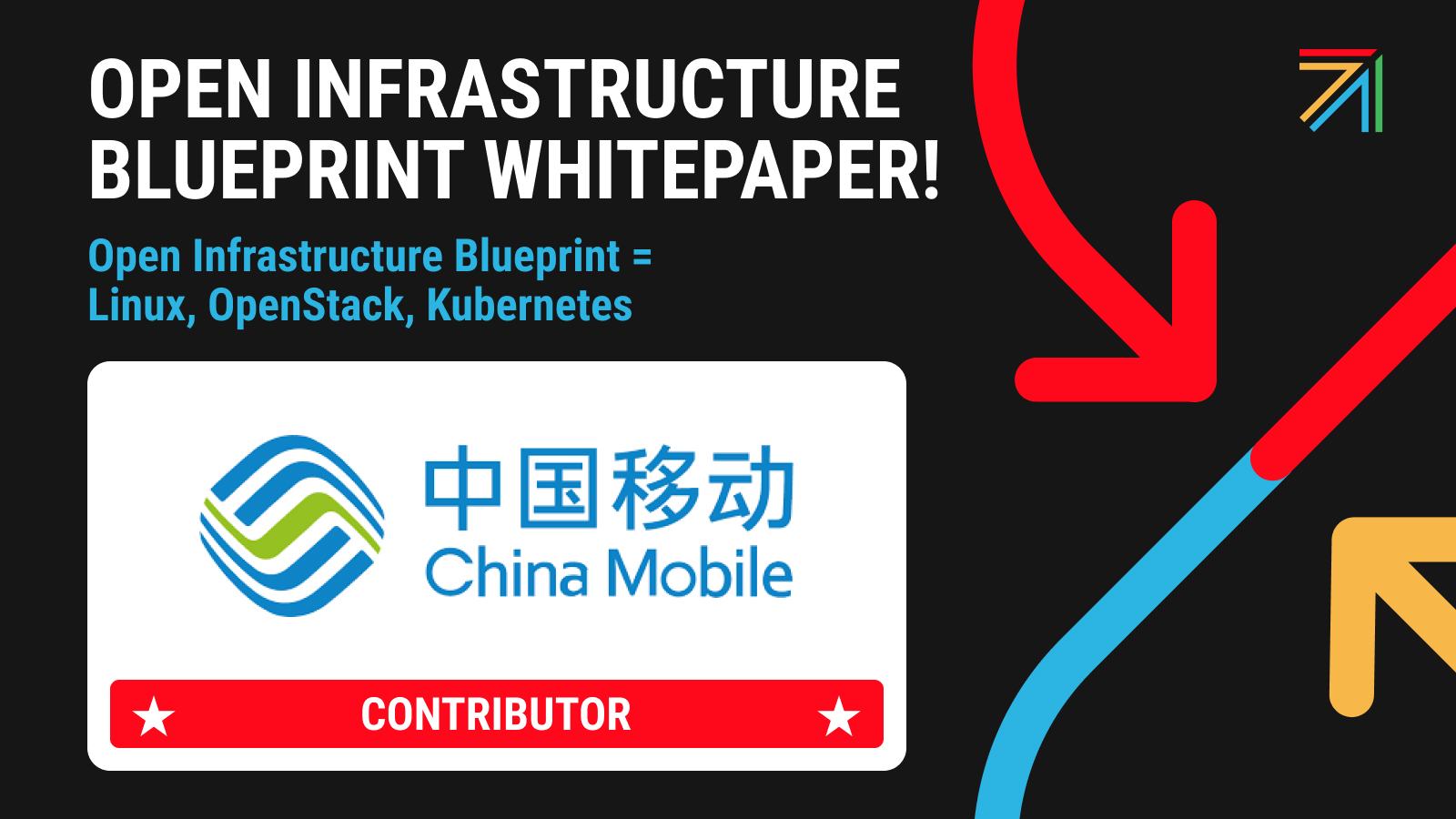The China Mobile Cloud case study is part of an OpenStack community effort to highlight the collection of open source projects that has risen as a powerful top-to-bottom open source infrastructure stack. This stack is made with Linux, OpenStack and Kubernetes, composing the Open Infrastructure Blueprint.
Anchored on the strategic goal of “world-class cloud service provider”, China Mobile is committed to building a high-quality computing power supply, rich computing network applications, advanced computing network technology, integrated industrial ecosystem, first-class governance capabilities and secure and green development assurance. China Mobile Cloud is responsible for accelerating China Mobile’s digital intelligence transformation, enhancing and expanding the scale of digital services, and contributing to the realization of Digital China.
After a decade of development, China Mobile Cloud has continually enhanced its technical capabilities. Currently, its self-developed products cover fields such as elastic computing, cloud storage, cloud networking, databases, cloud security, and other areas, encompassing the entire cloud computing industry chain. Additionally, China Mobile Cloud consistently exports its core competencies to various sectors, providing cloud computing and big data solutions for industries including government, healthcare, education, transportation, manufacturing, finance, and more.
China Mobile Cloud has independent intellectual property rights for its ‘Big Cloud’ technology system. It ranks among the top in China for contributions to OpenInfra, Ceph, and many popular Linux open source communities. It is the first SuperUser of OpenStack in China and a global gold member. China Mobile Cloud has won over 180 domestic and international awards, including the National Science and Technology Progress Award, the China Patent Award for Excellence, the China Electronic Society Science and Technology Award, the China Communications Society Science and Technology Award, the Black Technology Award and Product Award at the Digital Expo, the Outstanding Achievement Award at the World Internet Conference, and more. Additionally, China Mobile Cloud holds over 2,000 pieces of independent intellectual property.
In recent years, China Mobile Cloud’s business has been growing rapidly, with revenue reaching 83.3 billion yuan in 2023 and demonstrating a strong upward trend. It ranks third in China for public cloud IaaS market share and has achieved leading positions in various fields, including government cloud, healthcare cloud, private cloud, and others. China Mobile Cloud closely follows the trend of ‘from cloud to computing’, continuously optimizing and expanding its computing resource infrastructure. It has initially developed a diverse computing layout, including general computing and intelligent computing, accelerating the evolution towards a ubiquitous computing power network infrastructure. China Mobile Cloud is committed to building an efficient, secure, and green computing power ecosystem. Additionally, China Mobile Cloud is committed to internationalization transformation, targeting overseas markets, conducting in-depth research on the international cloud business market, and developing new international business opportunities.
At the same time, with the advancement of China Mobile Cloud’s technology, the company actively invests in research and development based on the use of open-source technologies, while also focusing on contributing to the open-source community. To date, China Mobile Cloud has independently open-sourced projects such as OpenCOCA, Lakehouse, HaloE, He3DB, Kosmos, SecScanner, OpenSDK, and more, including multi-language SDK sources. It has contributed over 4,000 patches to more than ten open-source communities, including OpenInfra, OpenEuler, OpenAnolis, Apache, Pulsar, Linux, and others. China Mobile Cloud has joined dozens of international and domestic open-source communities, such as OpenInfra, Linux, OpenEuler, CNCF, and more. It holds important positions, including director of the OpenInfra Foundation, chairman of the Linux Foundation board, and council member of the OpenEuler and OpenAnolis communities, playing a key role in these areas. From user to evangelist to creator, the relationship between China Mobile Cloud and the open-source community has evolved. By actively participating in global open-source events and contributing to the issues, China Mobile Cloud has not only demonstrated its own technical strength and product innovation, but also promoted the prosperity of the cloud ecosystem together with industry partners. In the future, China Mobile Cloud will continue to deepen its engagement with open-source technologies, refine its product system, and provide users with higher quality, more efficient, and reliable cloud service experiences.
________________________
In case you missed out, check out the Open Infrastructure Blueprint Whitepaper to better understand how to use Kubernetes, OpenStack and Linux together to create a top to bottom open source stack to meet the needs of many different use cases world wide!
- October 2024 OpenInfra PTG Summary - November 7, 2024
- H3C’s Use of the Open Infrastructure Blueprint - October 23, 2024
- China Mobile’s Use of the Open Infrastructure Blueprint - October 9, 2024

)










